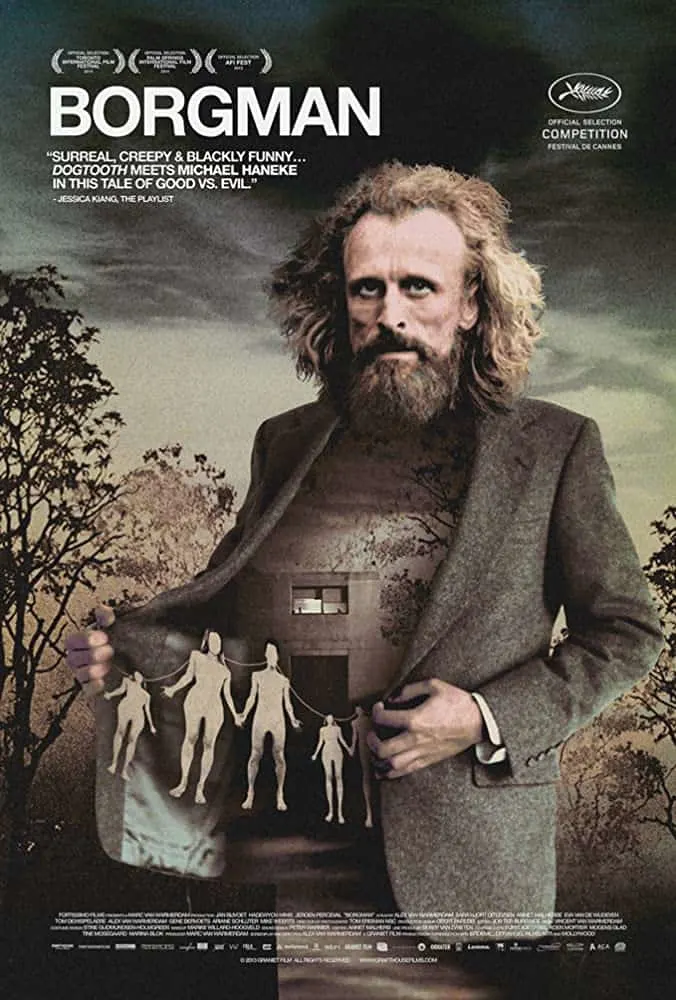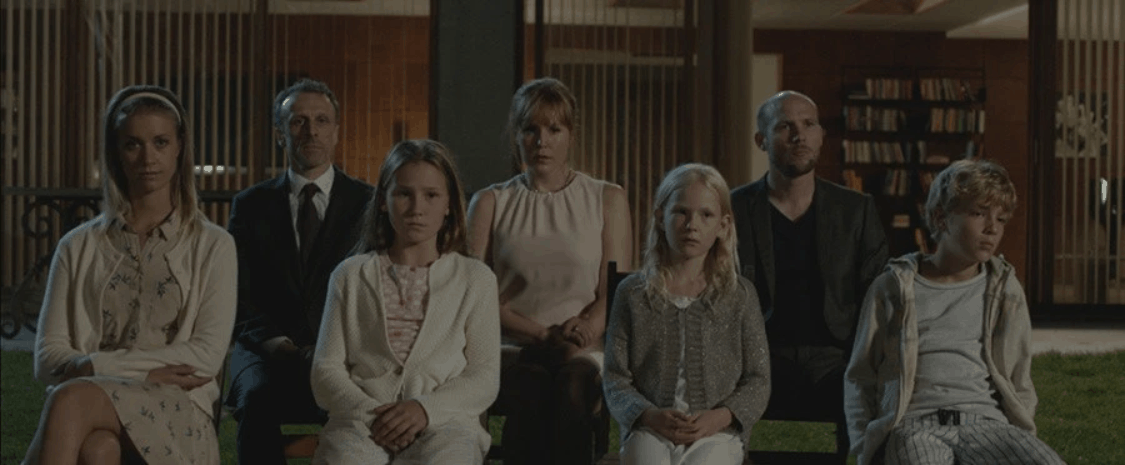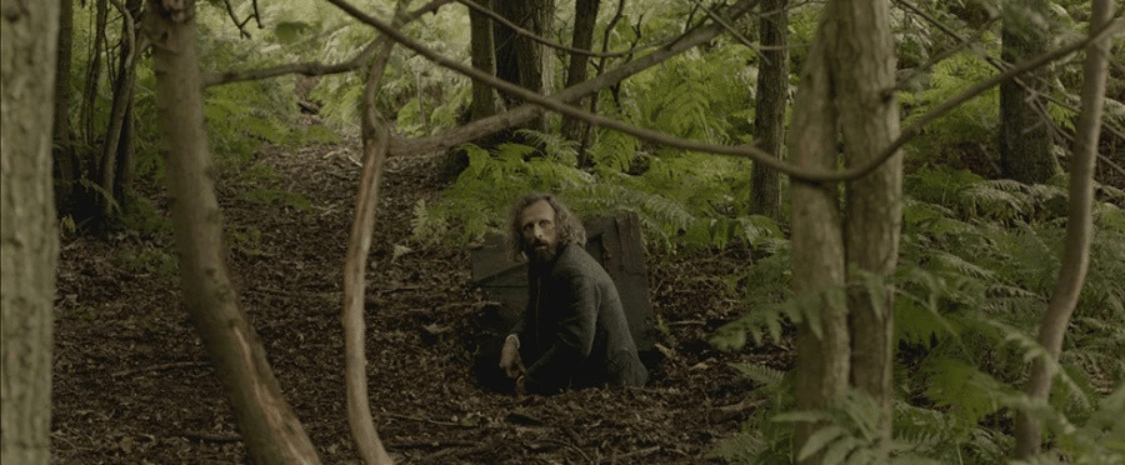- Top 10 Movies Like Good Will Hunting - March 17, 2022
- The Best Shows Like Peaky Blinders – Top Recommendations! - August 15, 2020
- Borgman Explained – All About The History & Plot - August 11, 2020
Borgman (2013) is one interesting movie the requires a deep dive, despite the fact that its charm lies in it’s cynical and cryptic plotlines. However, the biggest issue with Borgman is that it’s too confusing for the casual viewer – almost like it’s too smart for its own good.
Although pitch-black domestic comedies like these help distinguish this disturbing film from the rest of Amazon Prime’s catalog, I wanted to analyze this movie more in-depth to see what it was actually trying to say, instead of accepting it for what it was – puzzling.

History of Borgman and Its Director
While it’s true you don’t need to think too hard about European history or recent European cinema to find out where Alex van Warmerdam is coming from when he made Borgman, it’s an interesting concept to analyze none-the-less. Western Europe tends to talk about bourgeois social-democratic problems more honestly then their American counterparts, where guns and violence are front and center, and fantasy is more nihilistic.
It’s interesting to note that a Dutch actor and director, with no international profile, was swept up suddenly into the Cannes festival with a strange movie about a beautiful suburban household that became a nightmare in real life. With no direct conclusion of the movie to speak of, it’s impressive that Borgman saw traction at all.
After all, Warmerdam was familiar with movie and television at this point (with hits like The Last Days of Emma Blank, Little Tony, and Waiter – all of which he wrote, directed, and acted in). Yet, parts of the story are left unexplained, like where Borgman’s group of associates came from, who they are, and what they represent.
One thing is clear about Borgman and the director: they’re both shrouded in mystery.
Plot of Borgman and Film Information
Film Information
Despite how confusing the plot actually is, the basis of the story follows Camiel Borgman and his mysterious associates Ludwig, Pascal, Brenda, and Ilonka. The film’s language was Dutch, so you’ve likely seen the movie with English subtitles. The story takes place in the Netherlands, runs for 118 minutes, and released on 19 May 2013 at the Cannes festival, where it was nominated for the Palme d’Or. Borgman was selected as the Best Foreign Language Film for the Dutch category at the 86th Academy Awards but wasn’t nominated.
Plot
The story starts with an armed priest and two men who drive a group of homeless people from their underground dwellings. One of the homeless men, named Anton, appears at the door of a mansion where he meets an upper-class married couple named Richard and Marina and their 3 children. Anton says he knowns Marina because she was his nurse at a hospital.
Anton demands food and drink aggressively from her, but Richard gets visibly angry at his behavior and beats Anton up. Marina, driven by curiosity and guilt, lets Anton stay in a garden shed without Richard knowing. Marina, her 3 children, and Anton become friends during his stay. Anton has the ability to control dreams, and through this power, he makes Marina hate her husband while at the same time establishing a bond with Marina.

Anton eventually leaves this family to meet up with his team of four: Ludwig, Pascal, Brenda, and Ilonka, who devise a plot against the family that took him in. The teams poison the gardener and strangle his wife. The team appears before Richard, Marina, and their 3 children well-dressed and shaven after a few days. Anton introduces himself as Camiel Borgman, becomes the new gardener, and settles in the house while the rest of the team inhabits the shed.
As they settle into family life, it’s revealed that Borgman and his team have mind control powers, and they use these powers to corrupt minds and kill. Borgman seduces Marina to the point she wants her husband dead, and Pascal does the same with babysitter Stine who starts to despise her boyfriend.
By the end of the movie, the team has poisoned the rest of the house (including Marina) except for Richard and Marina’s 3 children. The team performs surgery on the children, so they distrust their parents. In the end, the team takes Stine and the children into the forest.
What Mythical Creature is Borgman and the Team?
The team of characters Ludwig, Pascal, Brenda, Ilonka, and Borgman, are likely supernatural beings that control other people’s dreams in an attempt to distort their perceptions of reality. To me, it sounded like a slasher-less Freddy Krueger/Friday the 13th movie. Except, the characters don’t kill their victims in their dreams.
It’s never clearly stated what these people are. Could they be human? Demons? Faeries? Forest sprites? With so many possibilities, I found something that resembles what the characters are – a dream eating Baku monster from Japanese folklore.
A dream eating Baku is said to devour nightmares, not necessarily influence them, but just like the Twilight and Anne Rice vampires turned the concept on its head, Borgman could do the same for the Baku. Baku’s are traditionally evil, but they have been known to appear as human shapes in more recent anime and manga adaptations. However, since the film doesn’t explain what they are, there is no definite answer.
Other possibilities are The Dullahan (headless horseman of Irish folklore), Ghouls, Wendigo (spirit of cannibalism), Pukwudgie, and the Nixie. All of these demons eat dreams, but none of them precisely fit the profile to what the Borgan team is or does. It’s entirely possible that Alex van Warmerdam created his own monster concept.
Reading of the Plot
Borgman has made a career on confusing, if not compelling, film and television pieces that require more than a casual viewing to understand. Even after multiple viewings, my dissection of the plot is still just speculation based on my own knowledge of other historical, religious, and anthropology topics.
Religious Interpretation
On its surface, Borgman is a classic Good vs. Evil story with the residence of the house acting as the good, while Borgman and his team are Evil. Camiel Borgman and team are forces of evil (demons, dark forces, spirits) and can be used as a general metaphor for evil in the world. It even seems that the movie opens with a quote, “and they descended upon the earth to strengthen their ranks,” which sounds especially biblical – except it isn’t.
If we assume that the director put that quote in the movie to enhance the plot – what did it do to drive the plot? My guess is nothing. It probably just sounded cool to him, and to his credit, it does sound cool. At the same time, to someone who isn’t religious, it seems like Borgman and his team were kicked out of heaven (like Lucifer) and are on earth to strengthen their army.
I have read an interesting theory that the whole movie reenacts Adam and Eve’s banishment from the Garden of Eden. Let’s first look at the name – Camiel. Camiel sounds very similar to Camael, who is one of the seven archangels and the one responsible for removing man from the garden with a flaming sword.
Let’s break it down further. For this theory to remain consistent, the snake would be Borgman. Eve would be Maina, and Richard would be Adam. Marina (Eve) is tempted by the snake (Borgman) – although I am not confident in saying the Borgman is actually satan, but maybe a solider or disciple of him.

So, what would the forbidden fruit be? Probably lust (one of the seven deadly sins) because of how far Marina goes to be with Borgman, who was just deceiving her the entire time.
Now we must ask, what was the point of all the senseless killing directed at the rest of the household? Does it matter? Pure evil kills indiscriminately and exist to destroy anything and everything good. It really seems that Borgman and the team kill for no reason and then use evil as a vehicle to corrupt the youth as followers. It’s evident in the plot the Borgman isn’t Catholic/Christian because he insults Jesus and creates doubt, lies to everyone, and initiates chaos.
Since Borgman has supernatural powers and the ability to speak to dogs and hijack dreams, he likely influenced Richard into attacking him, so Borgman would appear weak and in need of help. It’s no wonder that a priest is hunting him from the start – he’s likely an actual force of evil, destruction, and chaos.
Anthropological/Historical/Rational Interpretation
It’s human nature to rationalize anything and everything, and we tend to do so in two ways: a scientific explanation, or a supernatural/religious explanation. Both of these work well because no matter what, a person will receive a satisfying conclusion from either or both.
Removing all religious explanations actually makes Borgman make less sense because what you’re left with are characters that do things from societal expectations, money, or general hubris/ego. For example, if you interpret Marina letting Anton/Borgman stay in the shed as proper old bourgeois etiquette and guilt, then how do you explain Richard beating him up?
Still, the narrative is pretty straight forward and can be explained relatively well without a religious component. If we look at the weird scars the nanny and kids have on their backs; we can determine that the team are a bunch of organ traffickers. But then, how do these people survive until they’re poisoned? Did the team just take one kidney, one lung? How did they not notice that one of their organs were missing? Maybe it isn’t so straight forward after all.
Getting back to bourgeois etiquette, it makes sense that Marina wouldn’t kick Borgman out because that would be seen as impolite, and Borgman could sue, which would be bad for the reputation of the household. We’re seeing something called “white guilt” in action from Marina’s part as a way to offset Richard’s racism.

Richard refused to hire a foreign gardener; he dislikes and thinks homeless people are less than him – but when Borgard returns looking “well-cut,” Richard hires him instantly. Richard is a person who judges people by looks alone, not character.
Overall, this more realistic explanation of the film is a comment on the privileged class – which is a boring critique at this point (which is likely why people prefer the religious/supernatural explanation). The absent parents could also be a critique of the nanny state.
Regardless, there’s a lot of guilt in this film mostly perpetuated by Marina, who states that she feels that bad things will happen to her and her family because of the way they achieved their wealth (because they don’t deserve that kind of money).
FAQ
What are the dogs shown in the movie?
The dogs in the movie are a part of Borgman’s team of evildoers. They can take the form of greyhounds, but that isn’t explained in the film. A theory suggests that they take the form of greyhounds because they’re the only breed that is spoken of by name in the bible. The dogs are named Pascal and Ludwig, regardless of what form they take.
Are Borgman and his friends’ normal humans?
Although the movie doesn’t mention if Borgman or his friends are normal humans, it’s clear that they have some sort of supernatural abilities. Having supernatural abilities in fantasy doesn’t always make you non-human (wizards and witches, to name a few). Still, it’s a huge possibility that they’re fallen angels or demons based on the large amount of biblical symbolism in the movie.
Does Borgman have a religious component?
Absolutely. Although the movie doesn’t directly state that the film has a religious component, many movie reviewers, including myself, think that Borgman is thick with Catholic and Christian symbolism. Some examples include Borgman insulting Jesus, shepherding children, good vs. evil dynamic, and a priest chasing the main characters in an attempt to capture them.
What movies are similar to Borgman?
There aren’t many movies that are like Borgman – it’s a pretty unique specimen. However, if you like the religious aspect of it, you may like Constantine. If you’re more into slasher films about dream eating/killing, like Friday the 13th. If you like dense drama thrillers involving many twists and turns, I would recommend Sleeping with the Enemy.
Final Thoughts
Borgman has no conclusion, which can turn many movie viewers off as they find the experience unrewarding. Don’t let that sway you. The film is entertaining in its own right, but if I had to choose my preferred analysis, I would pick the religious one. Not only does it explain many irrational parts of the film, but it makes the plot that much more exciting and entertaining.
I would also recommend this film to anyone who doesn’t like the bourgeois because it takes a smart crack at the establishment as a whole. However, if you want characters with clear motivations, traditional storytelling, and definitive endings, I would pass this one up. I like films like these that make you think, are compelling, and have some horror themes, so I personally liked it and hope more movies of its kind are made in the future.
Further read:
Further read:
